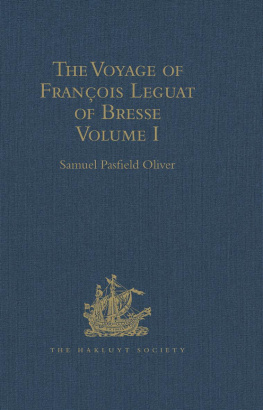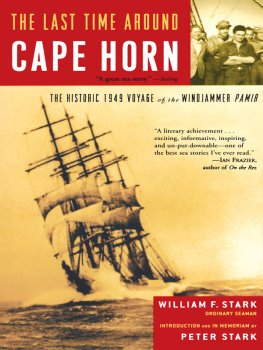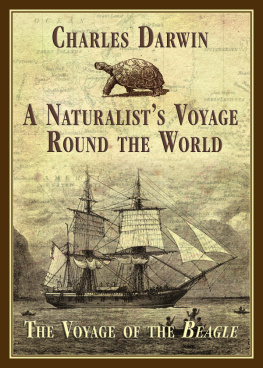Published by The History Press
Charleston, SC
www.historypress.com
Copyright 2021 by Charles H. Lagerbom
All rights reserved
First published 2021
E-Book year 2021
ISBN 978.1.4396.7320.1
Library of Congress Control Number: 2021938385
Print Edition ISBN 978.1.4671.5005.7
Notice: The information in this book is true and complete to the best of our knowledge. It is offered without guarantee on the part of the author or The History Press. The author and The History Press disclaim all liability in connection with the use of this book.
All rights reserved. No part of this book may be reproduced or transmitted in any form whatsoever without prior written permission from the publisher except in the case of brief quotations embodied in critical articles and reviews.
My father helped me appreciate the lessons of history, the lure of adventure and the call of the sea. I am proud to share his name as well as his love of a good story. This is for him.
ACKNOWLEDGEMENTS
Thank you to the following for your assistance and support in researching, writing and preparing this work, including those who are no longer with us (*).
Spencer Apollonio; Gary Bennett; Eric Berryman*; John F. Berube; Keith Brann; Bob Dale*; Jon Cox; Paul C. Dalrymple*; John Dearborn*; Susan Devlin; John Golden, PMM; Cipperly Good, PMM; Chris Grallert; Steve Hutchings; Ross and Zoe James; Kevin Johnson, PMM; Marvin Kenney; Audrey C. Lagerbom; C.E. Lagerbom; Jay Morrison; Ken Moulton*; Kelly Page, MMM; Megan Pinette, Belfast Historical Society and Museum; Christophe Pollet; Bob Rutford*; Stephen Sanfilippo; Bill Spindler; John Splettstoesser*; Sarah Timm, MMM; Ed Varney; Matt Winters; and Dick Wolak.
A special thank-you to my wife, Jennifer, and children, Audrey and Charlie.
INTRODUCTION
Cape Horn: that not-so-lofty mountain is represented in every sailors soul.
Thomas Wells
Cape Horns and Maines maritime histories are linked, fused by wooden ships, seasoned sea captains, intrepid mariners and hardy sailors of the Pine Tree State. My own visits there have been mercifully brief with decent weather, but with those gray seas, one can feel the presence of countless vessels and mariners who sailed these waters in far more challenging conditions. Some visitors suggest it is the light, wind or weird landscape that affects them. There definitely is a poignancy to the Horn; loneliness hangs heavy as the weather, melancholy with its remoteness, churning waters, cry of sea birds and constant winds. Truly fin del mundo, or worlds end, that faraway place, both geographically and emotionally, that can test ones mettle and sear the soul. One stands in awe of mariners who did it the old waythe hard way.
Cape Horn has earned a prominent place in art, song, literature and Maine seafaring history. Long recognized as a maritime touchstone for sailors, Cape Stiff still haunts the imagination. Doubling Cape Horn became the ultimate test of faith, hardihood and seamanship. A true test for a mariner, it earned them an exclusive badge of honor, a most-prized singular achievement. Those who were successful entered a privileged club. In the 1840s, Cape Horn veterans from Maine could be recognized by a gold earring in their left ear. Having doubled the Horn, they were allowed to put their feet on the table while diningboth if they also rounded the Cape of Good Hope. The earring testified to their success at surviving that stretch of water, the most dangerous on the planet. Captain Harvey Mills of St. George displays his earring in an 1847 painting at the Maine Maritime Museum. Mills went to sea at twelve and was captain by twenty-five. In 1872, before retiring, he brought the ship Eliza McNeil from New York to San Francisco in 119 days, which was respectable for a non- clipper. Other Mainers, not as successful, never returned from such troubled waters. This is why their earring was gold; it covered the cost of a funeral should the mariners body ever be recovered.
A portrait of mariner Harvey Mills, circa 1847, with his Cape Horn gold earring. Courtesy of the Maine Maritime Museum.
Other Mainers share this connection with Cape Horn. Thomastons Captain James Watts was only nineteen when he took the John T. Henry around the Horn. Searsports Lincoln R. Colcord, the son of Maine mariner Lincoln A. Colcord, entered the world in Cape Horn waters. On August 14, 1883, he was born aboard Charlotte A. Littlefield while his father battled through a storm. Lincoln R. Colcord died on November 16, 1947, at the age of sixty-four and was buried in Searsports Elmwood Cemetery, same location as Captain Jesse Thayer Carver, a Maine native who risked everything on a Cape Horn voyage. Aside from his maritime pedigree, Lincoln R. Colcord is known for writing Maine Stein Song for the university, which was popularized by another Mainer, Rudy Valle.
In the 1930s, Colcord corresponded with a Lorena Protheroe, the daughter of a maritime family who was familiar with Cape Horn and square-rigged ships. At the time, she was working on a book on the blue-water women who helped their husbands on difficult voyages. In a letter to Colcord, she noted with displeasure a potential publishers lack of interest and their suggestion about Cape Horn voyages tending to be repetitious or lacking drama.
I dont understand that, except that there were different angles of Cape Horn voyagesI thought them quite differentwow! And they had included accounts of Mrs. Pattens taking command of the Neptunes Car, of Miss Armstrongs command when almost all hands had come down with yellow fever and her mother had died, of Mrs. Oakes terrible experience alone in the cabin when her husbands ship was lost off the hornrepetitious? To my mind, scarcely. Horn passages, yes, from such very different angles to the same view. I guess it would take a Cape Horner to appreciate them, though.
Mainers and Maine-built ships labored in those waters, and some never came back. Horn casualties, whether ship or man, resulted in many empty graves back in Maine, only a headstone and a lost at sea inscription to tell the tale.
What is it about Cape Horn that makes men willingly put themselves through such an ordeal? What emerges is an exciting story of bold Mainers and dangerous voyages. Its all just part of the job, yet its an exhilarating and deadly dance with danger. Cape Horn might offer redemption, salvation, financial security and success, but it also came with failure, destruction, injury, financial ruin and death. Certainly, it was high-risk and high-reward, but was it repetitious or lacking in drama? Let the reader be the judge.











